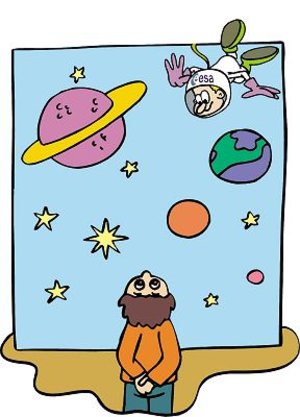Teachers in space
Info Note 07-2001. The European Space Agency is organising TEACH SPACE 2001, the first International Space Station (ISS) Education Conference for teachers, between Friday 26 and Sunday 28 October at its ESTEC centre at Noordwijk in The Netherlands. ESA is inviting teachers to enter space-related projects for this event.
The ISS Education Conference is open to anyone who teaches children in the 6-18 age range, whatever their subject. TEACH SPACE 2001 will be an opportunity for teachers to exchange practical ideas on the theme of space - and will also show how space can be an inspiration for teachers and students in any discipline.
The conference will enable teachers, companies and space enthusiasts to share ideas with colleagues from other European countries. Teachers will also have an opportunity to show their own space projects, proposals for which should illustrate how the theme of space can be incorporated into daily teaching. The best space projects will be selected for presentation at the conference and will compete for the title "Most Inspiring Project 2001".
During the conference, participants will not only meet colleagues from all over Europe but, as part of the programme, will also be able to talk to European astronauts, who will share their experiences of ISS operations and space exploration in general.
The International Space Station is one of the largest international projects of all time. Europe is taking part in it alongside the US, Russia, Japan and Canada. Once completed, the 450-tonne ISS will have more than 1200 cubic metres of pressurised space - enough room for 7 crew and a vast array of scientific experiments orbiting at some 400 km above Earth.
Europe, working through the European Space Agency (ESA), is responsible for two key elements, the Columbus research laboratory and the Automated Transfer Vehicle, a supply ship to be lifted into orbit by the Ariane 5 rocket, as well as experiment facilities for the pressurised laboratories of the ISS and for the external research platforms of the Station.





